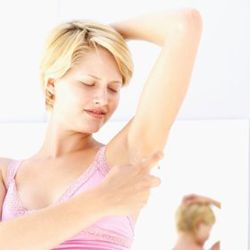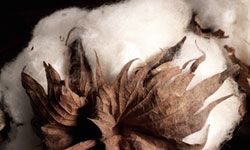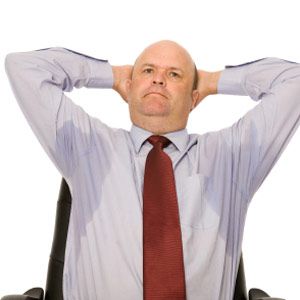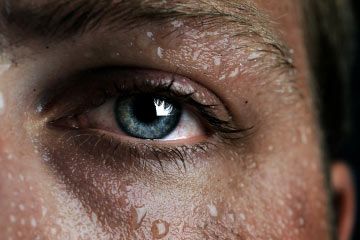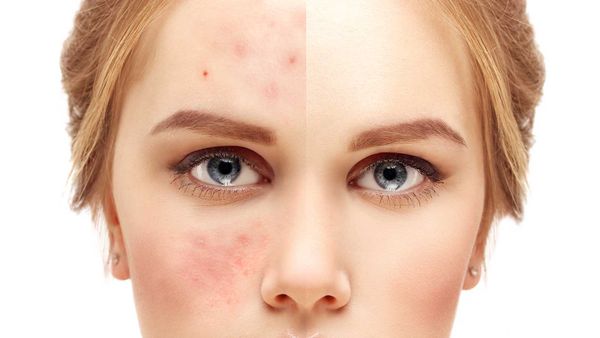It's your first day on the job and you've taken every precaution to make sure it goes well. Good night's sleep? Check. Balanced breakfast? Check. Clean, pressed shirt? Check. But by the time you reach the office to meet your new coworkers, a persistent enemy overshadows your ambitions: sweaty armpits. Two wet circles are forming under your arms and spreading -- before you can even settle in at your new desk.
Sweating is a natural process that helps regulate the body's internal temperature, especially during exercise or hot weather. As sweat evaporates from the surface of your skin, it removes excess heat and helps to cool the body. Unfortunately, this natural function is sometimes complicated by medical conditions that cause excessive sweating. Excessive sweating also can be driven by emotion or special circumstances: If you've ever soaked your shirt under the arms while making a presentation to a group or meeting your future in-laws, you've experienced situational sweating.
Advertisement
With more than 2 million sweat glands located throughout the human body, why does sweat seem to primarily occur underneath the arms? The apocrine glands, which are particularly efficient sweat-producers, are located in the armpits. The sweat produced by these glands contains proteins and fatty acids that make it thicker and give it a milky or yellowish color. That's why underarm stains on clothing appear to have a yellow tint.
Although sweat itself is odorless, when bacteria on the skin and hair metabolize the proteins and fatty acids in sweat, they produce an unpleasant scent. Preventing and controlling underarm sweat is important to good hygiene, comfort and your social life. Fortunately, there are several ways to prevent or minimize this condition, as well as the wetness and odor that accompany it.
